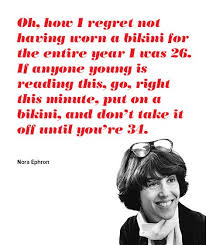It’s true, whenever I get sick, I anticipate the worst. Last Sunday night I
got the stomach flu, or something along those lines, with the
usual symptoms that keep you in the bathroom for quite a while. The recovery
period lasted about 48 hours during which I ate nothing, and gladly dropped a
few pounds (but not worth it). As I took to my bed with heating pad in tow, this
down time allowed for reflection as to what was really underlying my malady.
My dear friend’s husband has stage four pancreatic cancer. Her
family and closest friends have rallied to support her as she has made a
valiant effort to honor his request to be at home for the duration. As an
observer of his devastating decline and occasional participant in his care, I found it hard to believe by
Monday morning that I too had not contracted pancreatic cancer. After all, did
I not have similar symptoms as to what he originally experienced before his
diagnosis?
Several other possibilities occurred to me as I lay in bed, sending Tim out to get ingredients to meet my curative requirements, including buying and grating fresh ginger for tea. It could be appendicitis, a kidney stone, even a heart attack. I looked up every one. Time to rule out, or in, the most dire outcomes.
Several other possibilities occurred to me as I lay in bed, sending Tim out to get ingredients to meet my curative requirements, including buying and grating fresh ginger for tea. It could be appendicitis, a kidney stone, even a heart attack. I looked up every one. Time to rule out, or in, the most dire outcomes.
On Monday night, although certain death was imminent, I
summoned the energy to watch the HBO special “Everything is Copy” about Nora
Ephron’s life. If I was too sick to work on my own book, I could at least learn
about an admired author and her process. Ms. Ephron passed away in 2012 of
acute myeloid leukemia, the same rotten cancer that took my sister-in-law Patty’s
life. So naturally I wanted to watch, also
because Ms. Ephron has been known to have keen observations about life and love,
and as it turned out, death.
Her version of AML gave her time to consider how she wanted
to cope, and her decision was to keep her illness private, something I most
likely will not do. (My recent end-of-life trauma was communicated to anyone who would listen.) The program did inspire me to consider something she did in
her final years. She made a list of things she would miss, and those she would
not. In discussing this with a friend, I said that this seemed a useful
exercise as it makes you appreciate what you have and to be grateful. He said,
rather astutely I thought, it’s also a way to remove the clutter from your
life. If you identify those things that you will miss, your focus can change
and those items will rise to the top and hopefully you can drop the least important
ones completely.
Since it was becoming clear that my days were numbered, I started my own list and found many of the things I would and
would not miss are the same, or at least similar to Ms. Ephron’s. I hope to
hold this list in my mind always so that my remaining years will be clutter
free. What I won’t miss is a short list, so I’ll get that out of the way: the news.
Now, without mentioning the obvious people who have stayed
with me for the long haul and hopefully know that without them my life would be
meaningless, here are some of the things I will miss:
- My house
- Max and Rusty
- A fire
- Strawberry rhubarb pie
- Bed
- Aspetuck Reservoir
- Pizza
- Walking in the woods
- Barley wine beer
- The Joel Barlow track
- Getting the Christmas tree
Hmm, Ms. Ephron was right.
Everything is copy.

